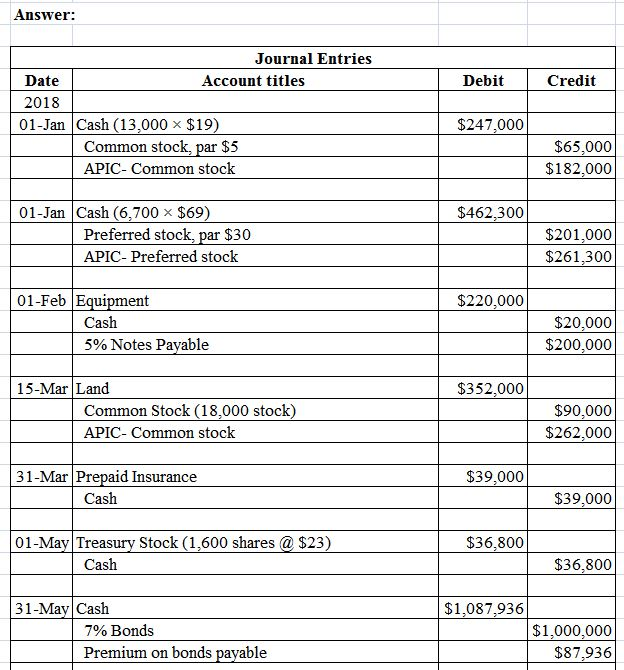Common stocks are highly liquid, meaning they can be easily bought and sold on stock exchanges. This liquidity makes them a flexible investment, allowing you to quickly enter or exit positions based on market conditions. Common stocks are widely traded on stock exchanges and are a fundamental component of investment portfolios due to their potential for growth and income.
Dividend income
In issuing its common stock, a company is effectively selling a piece of itself. The stock purchasers give up cash and in exchange receive a small ownership stake in the business. The holders of common stock’s ownership position is known as equity.
Why are adjusting entries necessary?
This certificate is known as a stock certificate, capital stock, or stock. They have the right to vote on business matters as well as board members according to their ownership percentage. This means that the one percent owner in our previous example would be able to cast a one percent vote at the corporate meetings. When buying a stock, investors don’t have to wonder exactly what type of stock it is.
- Due to their fixed dividends and lower risk profile, preferred stocks typically have less price volatility and greater growth potential than common stocks.
- Nowhere on the stock certificate is it indicated what the stock is worth (or what price was paid to acquire it).
- In a market of buyers and sellers, the current value of any stock fluctuates moment-by-moment.
- Investing in common stocks allows you to participate in the growth of the economy.
- The company’s class A shareholders (GOOGL -0.08%) have voting rights, while its class C shareholders (GOOG -0.06%) do not.
Trading and Price Changes
So, when you’re thinking about investing, look at how a company handles dividends. It can tell you a lot about their financial health and how they treat their shareholders. Common stock is like a tiny piece of a company that people can buy. When you own a share of common stock, it means you own a little part of that company.
The four types of adjustments in accounting include accruals, deferrals, reclassifications, and estimates. Accruals and deferrals involve adjusting entries to record transactions that have occurred but have not yet been recorded. Reclassifications involve moving amounts between accounts, while estimates involve adjusting amounts based on expected future events. Accrued revenue is revenue that has been earned but not yet received. To record accrued revenue, an adjusting entry is made to increase the revenue account and increase the corresponding asset account. In the income statement, adjustment entries are used to update the values of revenue and expenses.
Allowance for Doubtful Accounts
Common stock is a representation of partial ownership in a company and is the type of stock most people buy. Common stock comes with voting rights, as well as the possibility of dividends and capital appreciation. You can find information about a company’s common stock in its balance sheet. Most ordinary common shares come with one vote per share, granting shareholders the right to vote on corporate actions, often conducted at company shareholder meeting. If you cannot attend, you can cast your vote by proxy, where a third party will vote on your behalf. The most important votes are taken on issues like the company engaging in a merger or acquisition, whom to elect to the board of directors, or whether to approve stock splits or dividends.
Another important distinction between the two types of stock relates to what happens when a company is liquidated. In the investor hierarchy, preferred stockholders are paid out first before common stockholders when a company goes bust. A corporation’s accounting records are involved in stock transactions only when the corporation is the issuer, seller, or buyer of its own stock. The corporation will go about its routine business operations without even noticing that there were some changes among its stockholders.
The corporate charter can make additional classes like preferred shares, but this isn’t required. Investing in common stock means you’re putting your money into a part of the company’s journey. Understanding how dividends, voting rights, and the value shown in financial reports affect your investment as a stockholder can help you make smarter choices. Always remember, friends and family credit union investing is not just about making money; it’s about being part of a company’s story and holding a stake as a common stockholder. Owning common stock is not just about possibly getting dividends; it also means you get to have a say in big decisions. This could be about choosing the people who manage the company or making decisions on important matters.
Adjustment entries are necessary to ensure that revenue is recognized in the correct period, even if payment has not been received. Common stocks are one of the simplest ways to get involved in a company’s success. While they do come with risks, they also offer the potential for strong returns, whether that’s through rising stock prices or occasional dividends. The flexibility they bring can also make them an important part of your portfolio. Common stocks are highly liquid assets, meaning they can be bought and sold quickly on the stock market. This liquidity gives you flexibility, allowing you to easily adjust your portfolio in response to market conditions or changes in your investment goals.



